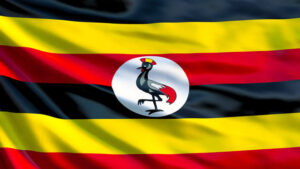
Uganda has moved to clamp down on social media use in the country even as its diplomatic relations with the US have taken a bad turn after a tense and disputed election.
On Monday (Jan. 18), internet services were restored after a shutdown imposed just ahead of polls opening on Jan. 14 but the ban on social media, which was originally imposed on Jan. 13, has remained in place. Only Ugandans with virtual private networks (VPNs) that haven’t already been blocked are currently able to access social media.
The concern now is that regulators have issued an indefinite ban on social media platforms. Some of the affected platforms include Facebook, Twitter, WhatsApp, Signal, Telegram, Skype, and Zoom. App distribution platforms iOS AppStore and Google PlayStore also remain blocked which means users without VPNs cannot download to log on to social media.
The move has also rendered the controversial social media tax which government introduced in 2018 irrelevant. Citizens who comply with the tax cannot access social media. The Uganda Communication Commission (UCC) is yet to respond to queries.
The Ugandan government has had recent direct confrontations with the US tech giants Google, Facebook, and Twitter alleging they’ve allowed their platforms to be abused by anti-regime actors. The tech companies insist they only act on users who are deemed to have violated their user policies.
A move by Facebook and Twitter to remove or suspend pro-regime accounts engaged in “coordinated inauthentic behavior” further riled up the authorities in Kampala who presented this as an excuse to shut down social media ahead of the polls.
On Sunday, Facebook flagged down a congratulatory message by Kenya’s president Uhuru Kenyatta to Museveni on its platform as “false information”. The message had been posted on both Twitter and Facebook by State House Kenya whose accounts are verified by both platforms. State House Kenya, subsequently, deleted the tweets. Last month, Google also rejected a request by the Ugandan government to remove a list of pro-opposition accounts from its YouTube platform. Users report that a number of Google platforms are affected in the latest ban.
Uganda’s decision comes as several governments around the world turn their attention to curtailing the power and influence of privately-owned social media platforms. Tensions are particularly acute in the wake of the Twitter and Facebook-led ban of outgoing US president Donald Trump from several media platforms after Trump incited an attack on the US Capitol.
Frosty relations
Meanwhile, there is little chance the Silicon Valley tech giants can turn to the US government to intervene on their behalf. Diplomatic relations between Uganda and the US hit a low on Tuesday (Jan. 19) amid allegations some US officials and diplomats are encouraging dissent in the country after the election in which president Museveni was declared winner of his sixth term in office amid allegations of fraud by the opposition.
The US and other countries in the West have taken a keen interest in Uganda’s 2021 election, compared to the past, and have occasionally issued statements raising concerns about events during and after the polls.
Robert Kyagulanyi a.k.a Bobi Wine, 38, the leading opposition candidate who came second, according to the official results, has been confined to his home outside the capital Kampala by the military and the police.
On Monday, Uganda’s security forces blocked US Ambassador Natalie E Brown, from visiting Bobi Wine at his home outside the capital Kampala where he has been kept against his will by security forces. Journalists, lawyers, and other officials have also been blocked from accessing Bobi wine.
The US government which has already warned that there will be consequences for those who undermine democracy in Uganda issued a statement calling on its Ugandan counterparts to “…to respect their citizens’ human rights and fundamental freedoms, including the freedom of expression, freedom of assembly, and freedom of the press.”
In response, government spokesman Ofwono Opondo, accused the US government and Ambassador Brown of meddling in Uganda’s internal politics in an attempt to subvert the will of the people.
It’s unclear if relations will improve with the incoming Biden administration in the White House as Biden is widely expected to return to a more traditional US approach to championing human rights and democracy around the world.
Security forces have also cordoned off the offices of Bobi Wine’s party, the National Unity Platform, a move the party says is meant to derail their efforts to collect the requisite evidence to back their allegations of election irregularities and fraud.
Ugandan authorities appear to be following a similar script to 2016 when they restricted then leading opposition candidate Dr Kizza Besigye to his home for more than three months and raided his party, Forum for Democratic Change, offices.
In 2016, the police blocked European Union and US envoys from visiting Dr Besigye at his home. After a standoff, the envoys were asked to leave their cars and escorted on foot to Dr Besigye’s home by a senior police official.
The US and EU declined to observe the election over concerns of accreditation including a move by Ugandan authorities to deny more than three-quarters of US requests
The US is a key development partner to Uganda providing close to $1 billion in much needed aid annually and supporting other efforts by the Kampala regime on the African continent.